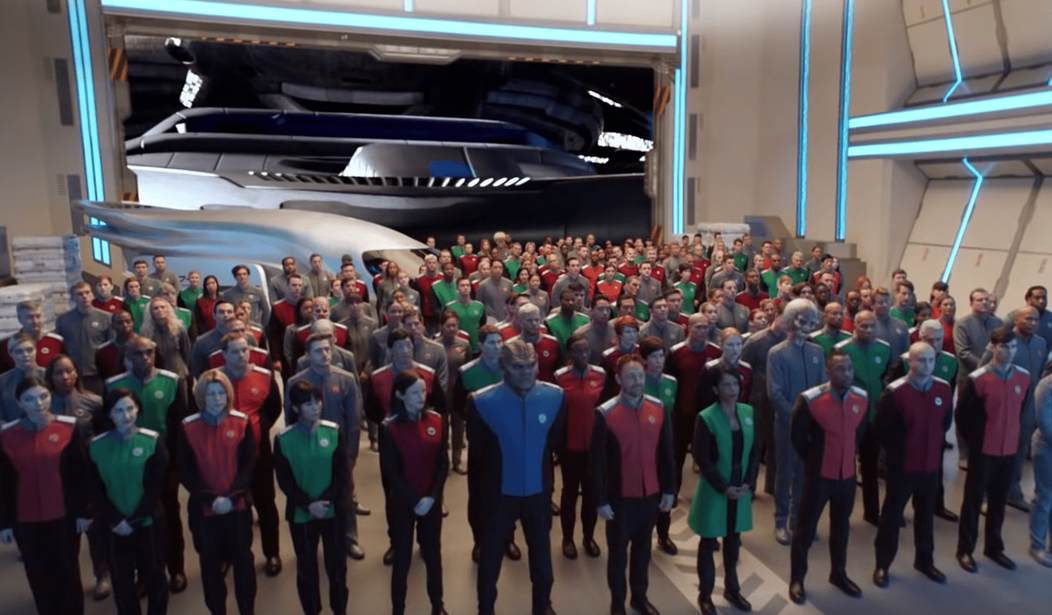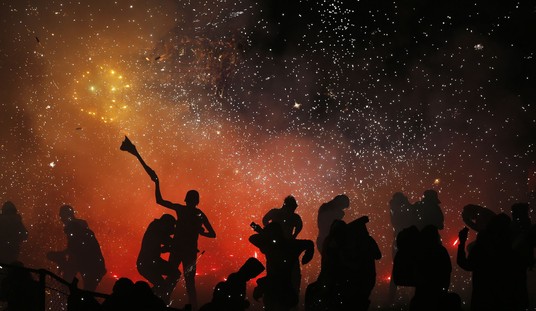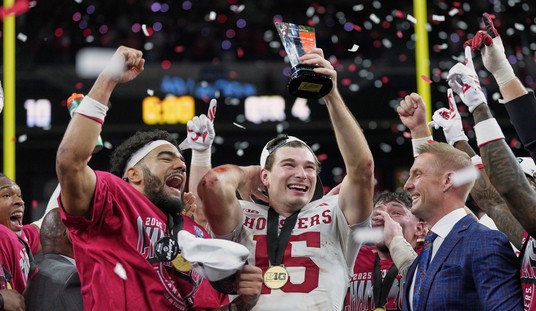I stopped watching The Family Guy in 2008, when an episode weeks before the presidential election featured character Stewie Griffin traveling back in time to Nazi Germany, blending in by stealing the uniform of a Nazi soldier, and discovering a McCain/Palin button on the uniform. It was always a liberal show, but it was funny and it wasn’t so bad I couldn’t tolerate the subtle politics. But that was too much. I haven’t watched an episode since. And from what I hear, the show, created by Seth MacFarlane, has become even more political since then.
But, when I heard Seth MacFarlane had created a new science fiction show, The Orville, I was intrigued. It looked like Star Trek with a funny bone, and despite my boycott of The Family Guy, I decided to give it a try. I figured it would start off aggressively progressive, and I’d be done with it quickly. But, when I watched the pilot episode I found myself entertained… and kept watching every week. Are there liberal themes in the show? You bet. Like Star Trek, the future that Seth MacFarlane created for the show has Earth existing as a prosperous socialist society—something only fiction can deliver. But, most of the liberal agenda is subtle, or at least more subtle than most television shows these days are. In fact, as I continued to watch, I found many conservative themes presented in various episodes and plotlines.
[Spoilers Below]
One of my favorite episodes is “Majority Rule,” an episode featuring a planet similar to Earth, but it has a justice system that involves the populace voting individuals up or down to determine their fate. When Lt. John LaMarr, a crewmember of the Orville, is recorded disrespecting a statue, he gets caught up in this justice system. His publicity officer explains to him, “You received over one million downvotes from the public, which makes what you did a crime against the state. You will now begin an apology tour during which the people will vote on whether or not they believe your sincerity. If your downvotes remain under ten million, you’ll be free to go.” If LaMarr received over ten million votes, it is explained he will “undergo social correction to prevent future transgressions.” This episode paints direct democracies as dangerous and extreme. Considering the growing movement amongst the left to abolish the Electoral College, I can help but find that amusing. The Electoral College protects us from mob rule, which is so cleverly presented in this episode it’s hard to imagine how the writers failed to make that connection.
Social issues are also addressed on the show. While The Orville clearly sees itself as progressive on the issue of homosexuality, there are no homosexual relationships represented in the crew. None. Zero. Zilch. Hard to believe, but it’s true. The task of representing homosexuals on the show belongs to Moclans, an all-male race that reproduces via laying eggs (which still doesn’t make sense in an all-male race). Interestingly enough, they belong to a very conservative society. Plotlines surrounding Moclans are the most heavyhanded when it comes to addressing social issues and attacking the conservative right—though not necessarily with success.
In “About A Girl”, the third episode of the first season, Lt. Commander Bortus, a Moclan, and his mate Klyden have discovered their child, who has just hatched from an egg, is female. This is an extremely rare occurrence among Moclans, and typically results in sex-reassignment of the child to male. At this point, I anticipated an episode meant to normalize transgenderism, but it became something else entirely. When Bortus asks the ship’s doctor, Claire Finn, to do the sex-reassignment procedure. She refuses, and Captain Ed Mercer, played by Seth MacFarlane, says he won’t order her to do it. Over the course of the episode, the debate over sex-reassignment on an otherwise healthy child is debated, with nearly unanimous opposition to it. Bortus himself eventually has doubts about the sex-reassignment of his child. A Moclan tribunal ultimately decides the child’s fate: that the child must undergo sex reassignment—in what is not portrayed as a happy ending. My initial reaction to this episode was that the transgender rights movement would be furious over what came across as an anti-transgenderism episode. This is addressed in a later episode in the second season, when Bortus finds himself addicted to x-rated fantasies on the ship’s simulator. The episode is clearly about the dangers of pornography and its negative impact of real relationships (another socially conservative theme) but what I found most interesting was that at one point in the episode, Bortus traces his detachment from his mate to the forced sex-reassignment of their child.
In the seventh episode of season two, prejudice against homosexuals is addressed rather bluntly with another episode focusing on Moclan traditions. On Moclus, attraction to females is an abomination and a crime resulting in life imprisonment. In this episode, a Moclan engineer brought on board the Orville to improve the ship’s deflectors reveals himself to be attracted to females to a member of the crew, and is discovered by Moclan authorities. It’s an absurd metaphor likely meant to critique traditional/Christian values, but instead feels like an allegory to radical Islam (which treats homosexuality as a crime, and results in death) and I’m fairly sure that was not the intention of the writers.
Overall, the obvious attempt of the writers to use Moclans as the means to address LGBT issues is pretty sloppy satire. And, as I’ve shown above, can easily be interpreted the opposite of the writers’ intentions. Aside from that, The Orville benefits from strong writing as a sci-fi comedy. Don’t get me wrong, despite my example of conservative themes, it isn’t a conservative show. There are definitely themes that are unabashedly leftist. Religion is treated as antiquated in technologically advanced societies. The one race that has held onto religion in spite of their advanced technology is the Krill, who are the main adversaries through most of the show’s run. They are likely meant to be stand-ins for devout Christians. But, upon closer inspection, they resemble another group. The Krill are motivated by their religion and seek to destroy nonbelievers of their deity. Sounds an awful lot like radical Islam, doesn’t it?
I suspect that if the show gains popularity, the writers will find ways to be more unequivocally progressive, but so far, I have found it to be an enjoyable show that I look forward to watching. That some storylines can be interpreted as socially conservative at least makes the show feel balanced politically in a way that’s hard to find on other programs. The sci-fi storylines are solid, and the characters are great as well… I believe conservatives can enjoy the show without feeling like they’re being attacked. That may change in future episodes, but for now, this conservative will still be tuning in.
You can catch The Orrville on the Fox website or on the Hulu and Amazon Prime streaming platforms.
_____
Matt Margolis is the author of The Scandalous Presidency of Barack Obama and the bestselling The Worst President in History: The Legacy of Barack Obama. His new book, Trumping Obama: How President Trump Saved Us From Barack Obama’s Legacy, will be published in 2019. You can follow Matt on Twitter @MattMargolis










Join the conversation as a VIP Member